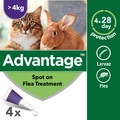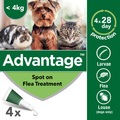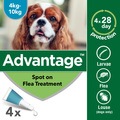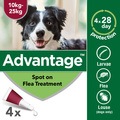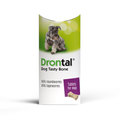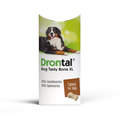The government has released guidelines on what we can and can’t do with our pets in lockdown. Here at VioVet we have compiled a handy FAQ list to help you understand how to look after your pet with all the new laws involved!
Can my pet be infected?
See our blog on this for further information.
Can my pet spread the infection?
There have been no documented cases of the virus passing from pets to people. However a recent study by the US National Institutes of Health (NIH) found the virus can survive for 3 hours in the air and up to 24 hours on cardboard. The test didn’t take into account animal fur, and from the trends it seems very likely that the survival time on animals would be short. COVID-19 survives longer on smoother objects, such as cardboard/plastic/steel. We do still advise good hygiene practices however.
Can I walk my dog?
Yes! You can head out for exercise once per day, and this should be combined with walking your dog. If there are multiple people in your household, then you can take it in turns to walk your pet. This is especially useful for very energetic dogs that need 2, or even 3 walks a day. Whilst out you should ensure you keep up social distancing, staying 2 metres away from other people and dogs.
Can I stroke my pet?
Of course. It is important for your pet's welfare to keep giving them attention/affection, especially during this time of change and uncertainty. Companion animals have not been shown to carry COVID-19, but as it can survive on their fur, it is advised that you wash your hands before and after touching them. This goes for other people's animals too.
Can I visit and ride my horse?
In short, yes. You can combine your once daily exercise with visiting your horse and if you have multiple people in your household then you can visit one at a time.
Whether or not to ride is up to your discretion. It should be done alone (no group hacks/events) whilst maintaining social distancing of 2 metres. Be safe when you do this as the NHS is already overstretched. Now is not the time for risky intense training!
Can my horse see the farrier?
Yes. It is important your horse's feet are well maintained or they can become lame or uncomfortable. Ring your farrier to discuss your options and how to do this safely. They should have guidelines in place on how they can come to see your horse whilst maintaining social distance.
What should I do if my pet needs veterinary care?
Contact your local vet. Most vets are only open for emergencies but they can still give you tailored advice on whether your pet should be seen or not. Written prescriptions can be written for many ongoing health issues so you can order these medications online through our website.
What about my pet’s vaccinations?
Most vets are not currently carrying out routine booster vaccinations. This is because the risk to human health of spreading covid-19 during vaccination consultations/visits is higher than the risk of an unvaccinated animal getting significantly sick. Do not worry, your pet will still have immunity from previous vaccinations but this will start to fade over a few months. The risk of your pet getting the diseases we vaccinate against is also lower currently with social distancing in place.
Once the lockdown procedures are over, your vet can advise whether your pet can have a normal booster again or will need to restart their vaccination course.
I’m self isolating because I am high risk or showing signs, so what extra steps should I take?
Prioritise your health and get others to help! You must stay in your house and follow government guidelines for the entire time you need to isolate. Wash your hands before and after touching your pet. This is really important to prevent the spread of infection.
Get a friend to care for your pet:
Dogs
-
If your dog needs little exercise, then only let them out into your garden for walks/toileting.
-
If this is not possible, then get a friend or dog walker to walk them.
Horses
-
Have a friend feed/clean/care for your horse.
-
If not possible, then contact your yard for help in order to do this.
Written by: Dr. Nick Garside BVetMed MRCVS

